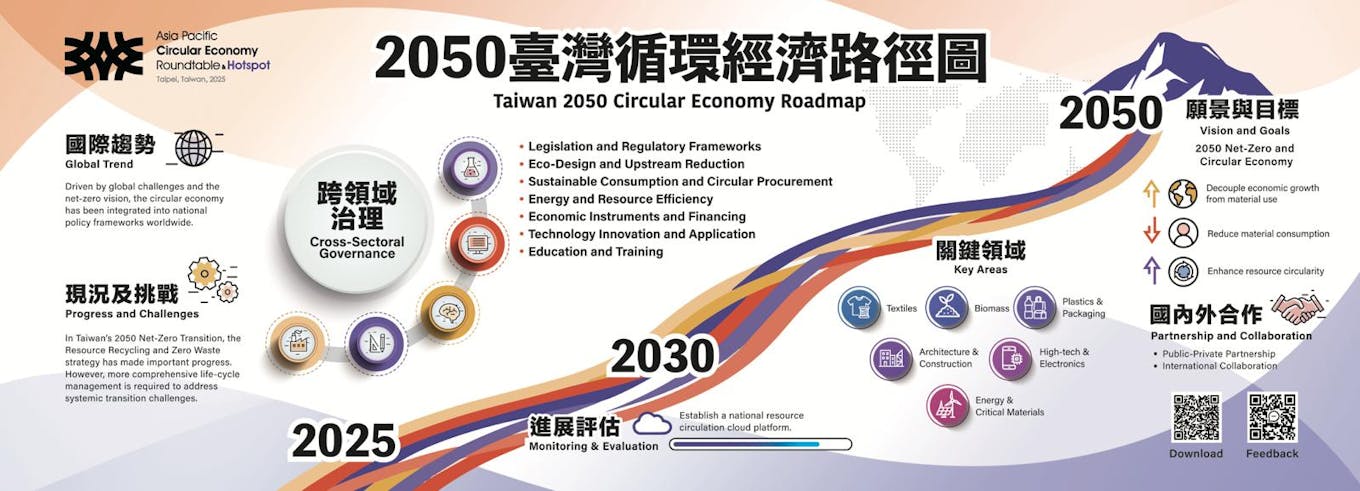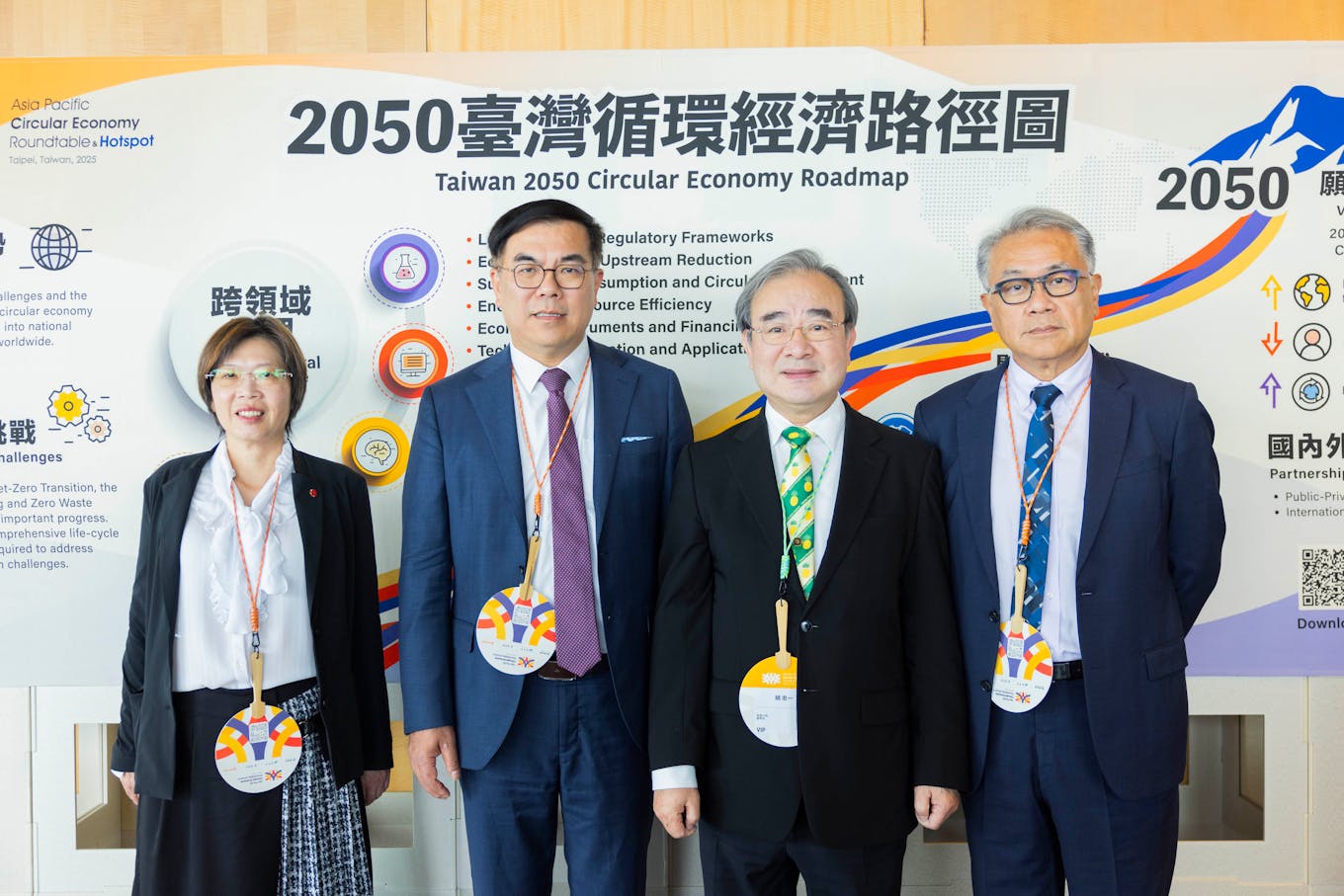As Taiwan accelerates in circular industries, the test for Southeast Asia is whether the region can align with the island’s new circular economy roadmap fast enough to unlock advantages in cross-border trade.
Taiwan is sharpening its long-term vision for a more resource-efficient, low-waste future, unveiling a new draft blueprint that outlines how the island plans to scale up circular economy solutions across industries.
A circular economy minimises waste by keeping materials in use for as long as possible through reuse, repair and recycling. Governments and businesses worldwide are turning to circular models that reduce dependence on constant extraction and cut the amount of rubbish sent to landfills or incinerators.
“Taiwan aims to become the hub of the circular economy in Asia,” said the island’s environment minister Chi-Ming Peng at Asia Pacific Circular Economy Roundtable & Hotspot (APCER) on 22 October, where the draft roadmap, formally titled the 2050 Taiwan Circular Economy Roadmap, was released.
The roadmap, slated for finalisation in 2026, sets long-term targets to double resource productivity, cut per-capita material use by about 30 per cent and increase the island’s circularity rate to 2.5 times its 2020 level, while outlining reforms in eco-design, circular procurement and innovation to shift the country from waste management toward a full resource-circulation system.
“Circular economy is highly localised yet not something that can be done by one country alone,” said Peng who emphasised the importance of regional collaboration.

Taiwan has made the circular economy a central part of its long-term sustainability agenda, saying the shift is critical for an island with limited natural resources and one of the world’s most export-dependent industrial bases.
Officials argue that circular systems can reduce reliance on imported raw materials, lower waste-management pressures and improve the resilience of supply chains that support sectors such as semiconductors, petrochemicals and machinery.
The government has expanded recycling rules, introduced extended-producer-responsibility schemes and funded pilot programmes in remanufacturing, industrial symbiosis and eco-design. It has also promoted collaboration between local manufacturers and multinational brands under growing pressure to cut emissions and shrink the environmental footprint of their products.
Taipei says stronger circularity can give Taiwanese companies a competitive edge as global buyers demand lower-carbon, resource-efficient goods.
Stephanie Downes, Asia-Pacific executive director at the Waste and Resources Action Programme (WRAP), said Taiwan’s roadmap could position the island as “a new reference point for circular economy standards in Asia”, offering a policy anchor similar to the European Union but with a stronger focus on practical collaboration and technology sharing.
She added that Taiwan may provide a more relatable set of benchmarks for Asean countries, given the similar environmental pressures and resource challenges faced across the region.
Many Taiwanese supply chains run through Asean, and officials say aligning circular standards across the region, such as improving waste segregation, developing cross-border recycling infrastructure and adopting closed-loop production, would reduce pollution and strengthen regional industrial ties.

Taiwan has been steadily building the foundations for regional cooperation through its New Southbound Policy, launched in 2016, to deepen trade and diplomatic ties with Southeast Asia. The policy encourages Taiwanese firms to assess market needs across Asean and invest in local resource, capital and technology gaps. It has also led to the establishment of Taiwan External Trade Development Council offices in eight Asean countries, creating channels for two-way investment and market access.
Alice Chou, vice president of the Taiwan Institute of Economic Research, said Taiwan’s circular-economy ambitions will only succeed overseas if they are adapted to local conditions.
“There’s a need to adapt to local population needs and government policies,” she said, noting that advanced technologies alone will not guarantee uptake. Analysts believe Taiwanese industries that already comply with extended-producer-responsibility rules may become early movers in seeking circular partnerships in Southeast Asia.

